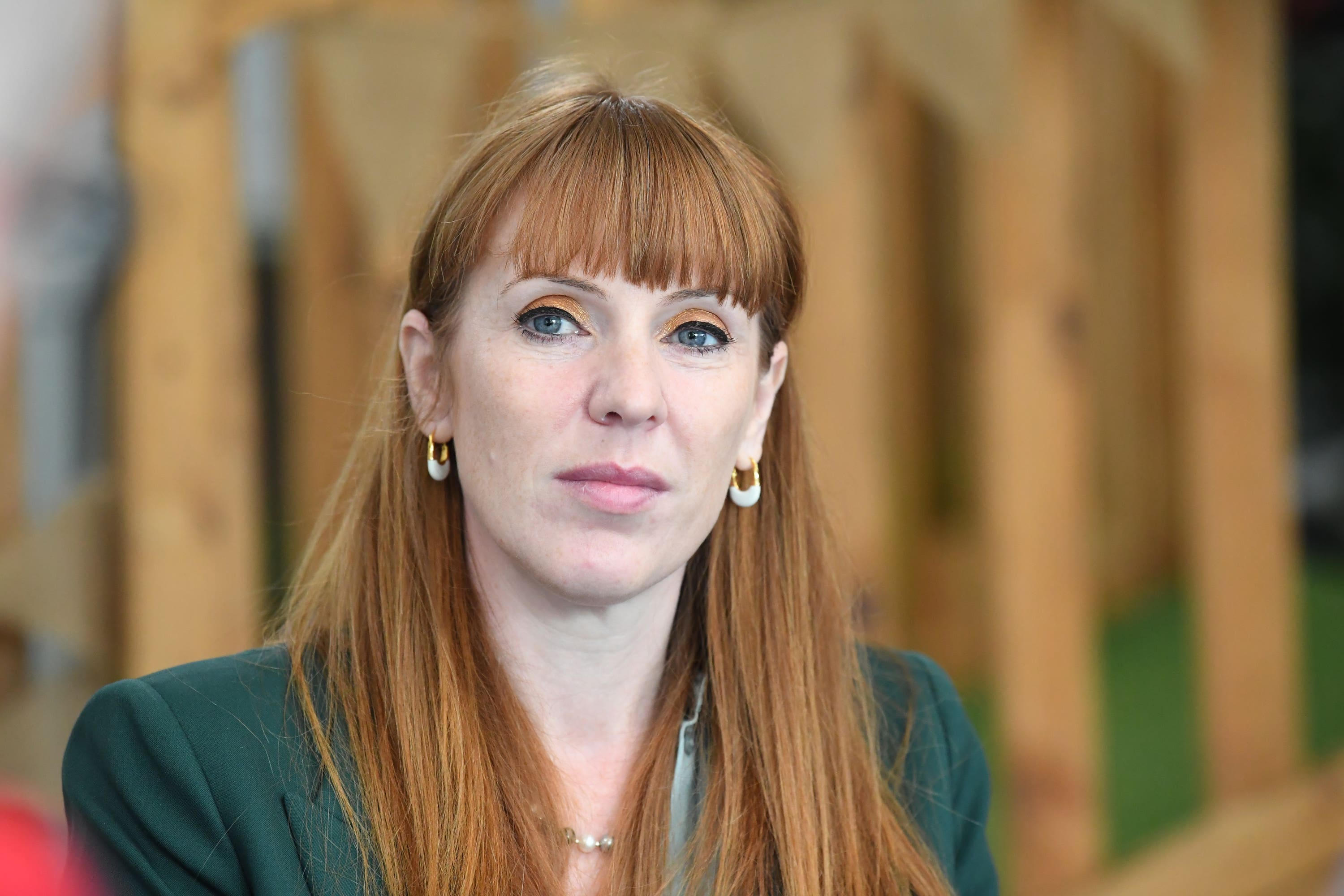‘Devolution revolution’ does not mean ‘instant sugar rush’ for economy – Rayner
Local Government Secretary Angela Rayner also said increased devolution measures are not a tactic to shift responsibility for tax rises.

Your support helps us to tell the story
From reproductive rights to climate change to Big Tech, The Independent is on the ground when the story is developing. Whether it's investigating the financials of Elon Musk's pro-Trump PAC or producing our latest documentary, 'The A Word', which shines a light on the American women fighting for reproductive rights, we know how important it is to parse out the facts from the messaging.
At such a critical moment in US history, we need reporters on the ground. Your donation allows us to keep sending journalists to speak to both sides of the story.
The Independent is trusted by Americans across the entire political spectrum. And unlike many other quality news outlets, we choose not to lock Americans out of our reporting and analysis with paywalls. We believe quality journalism should be available to everyone, paid for by those who can afford it.
Your support makes all the difference.Labour’s “devolution revolution” will not give local economies an “instant sugar rush”, Deputy Prime Minister Angela Rayner has said.
Ms Rayner, who is also the Communities and Local Government Secretary, has written to leaders of councils which are not subject to a devolution deal to urge them to “partner with the Government”.
The Labour Government has said its doors are open for areas that want to take on devolution for the first time, as well as potential increases in powers for currently devolved local government.
The announcement came ahead of the King’s Speech on Wednesday, in which mayors and councils are expected to be handed more control over skills, energy, planning and transport, including bus routes and fares.
Asked if the Government was considering devolving more spending powers to shift the blame on potential tax rises, Ms Rayner told Good Morning Britain: “That’s not what the devolution revolution is about.
“It’s about making sure that all parts of the country has growth plans and are injected into that growth. As the Prime Minister set out, he believes people with skin in the game are critical. That’s why he met with the mayors recently and I’ve reached out to leaders today to say come on board.
“I think devolution powers like skills, employment, housing, planning, these things will really kickstart the economy.
“I’ve changed the name of the department and put local government back in the name because levelling up was a sham and a scam but actually dealing with the entrenched inequalities, making sure that things like Great British Energy and the National Wealth Fund hit all parts of the country.”
She added: “I want to see collaboration and getting the basics right because many people are frustrated at the moment that their services that they rely on every single day are crumbling. We’re seeing that in our NHS, we’ve even seen the crises that were left in our prisons, so really tackling the fundamentals will put us on the right path.
“Now that doesn’t always give you the headline gimmicks and it doesn’t give you the instant sugar rush, but it will give us the foundations for our economy’s stability into the future.”
Earlier this month, Prime Minister Sir Keir Starmer and Ms Rayner held a meeting with 11 regional leaders, including Labour’s London mayor Sadiq Khan, Greater Manchester mayor Andy Burnham, and the only Conservative mayor, Tees Valley’s Lord Houchen.
Sir Keir told them at the meeting on July 9 that he wants to build “a real partnership”.
The Government is exploring reform of the national planning policy framework, including restoring mandatory housebuilding targets for local authorities, as part of the drive to build 1.5 million homes over five years.
Housebuilding targets will mean allowing building on some land currently designated as green belt and in the King’s Speech there may also be measures aimed at speeding up approvals for major infrastructure projects.
Ms Rayner said the Government “can’t have major infrastructure programmes being held up at a local planning level” as she disputed that planning decisions being made at a national level is the opposite of devolution.
She told the BBC: “Planning, whether it’s our national infrastructure planning, will always have a local element to it, where they will take the first decisions.
“I’ve set out that I want local mandatory targets, again, I think that’s important so that there is skin in the game, again, that they’re making decisions, but we can’t have major infrastructure programmes being held up at a local planning level.
“And the Chancellor also set out the 400 new planners that we will put on board in a taskforce to support us in making sure we do communicate with local authorities and local communities to get our national infrastructure kickstarted.
“At the moment people are waiting up to seven, eight, nine, 10 years for planning of national interest to get under way and that’s slowing down growth and we’ve seen that that’s having a negative impact, not just on our GDP and what the country can provide, but on local communities as well and our public services so we have to get growth.”
She added: “We have to get Britain building if we want growth, and we’re being very upfront about that and I think we got a clear mandate not only for devolution, which I’ve set out today, but also about making sure that we get the growth and those homes that people desperately need.”